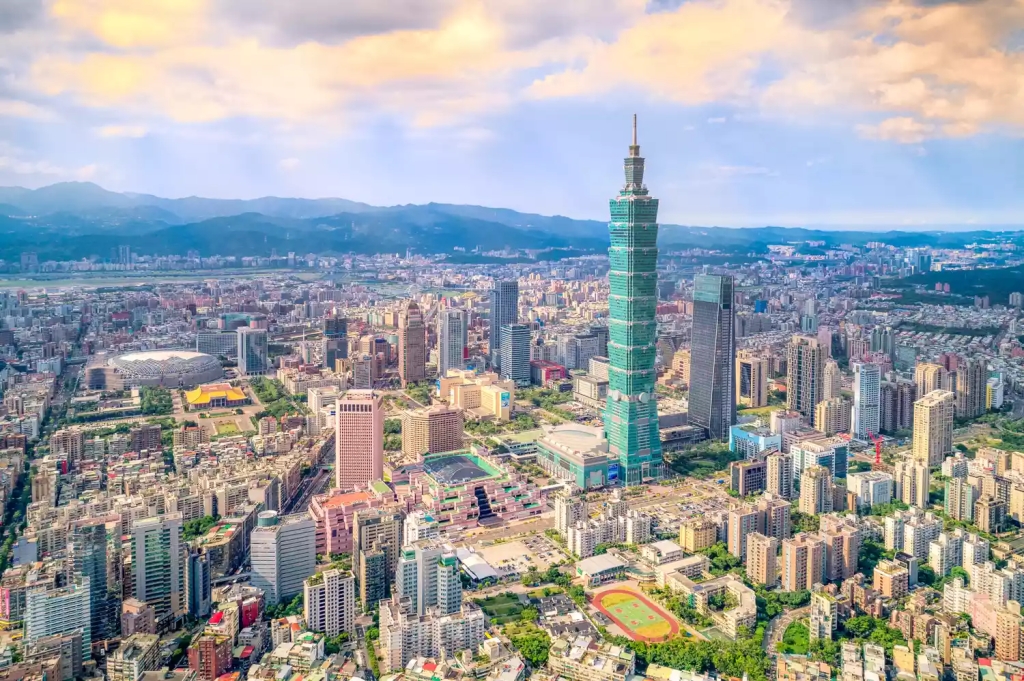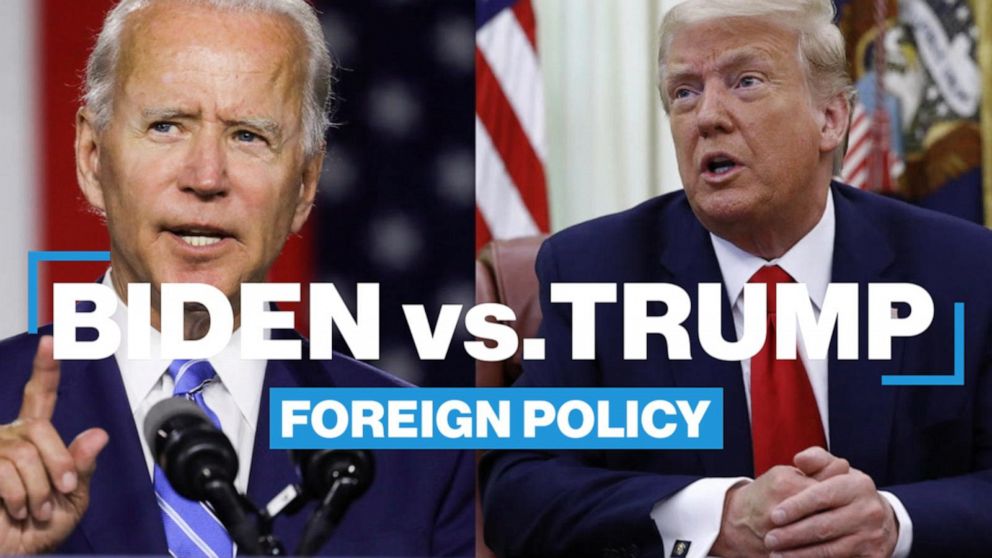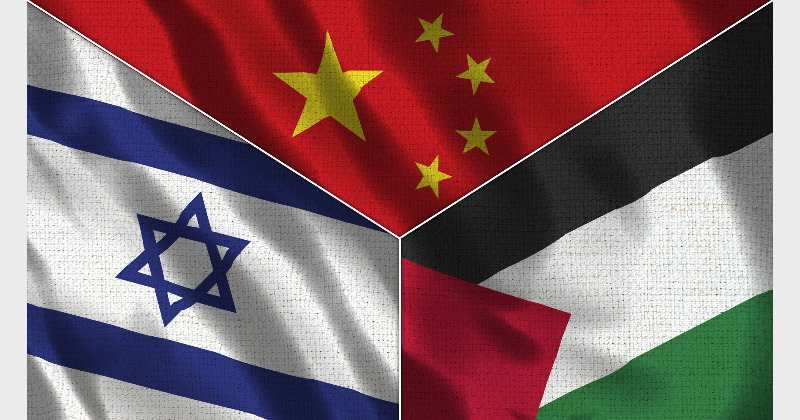Supply chains have become the key arteries of the global economy. This is especially true in the sea lines that link the Indian Ocean to the Pacific Ocean through the Malacca Straits, South China Sea, East China Sea and waters surrounding Taiwan.
They have enabled the seamless flow of goods and services across borders at affordable prices. This has facilitated globalization and improved the quality of lives for most.
Critically, Taiwan has emerged as a vital player in supply chains in the Indo-Pacific region, transforming Taiwan into a global public good.
This paper expounds on Taiwan’s role in these supply chains and analyzes the potential ramifications for Canadian national interests in the event of a Taiwan contingency with China.
Recognizing Taiwan’s pivotal economic role in the Indo-Pacific region is essential. This role is a reflection of cross-strait relations, Taiwan’s central role in the production of the latest semiconductors, geopolitical tensions associated with the U.S.-China strategic competition and Taiwan’s deep integration in global supply chains.
Taiwan’s economic vitality is anchored by its robust high-tech industries, particularly semiconductors, where it is a global leader, thanks to companies like Taiwan Semiconductor Manufacturing Company (TSMC).
The island’s semiconductor prowess is crucial for international markets, given the global dependency on these components in an array of sectors, from consumer electronics to advanced military systems.
Moreover, Taiwan’s strategic location along the East Asian littoral positions it as a vital node in the first island chain, influencing sea lanes that are critical for trade in the region.
While not mentioned directly, Taiwan plays a significant role in the Free and Open Indo-Pacific (FOIP) vision, created by the United States and its allies, including Japan, and aiming to ensure security and the uninterrupted flow of commerce.
The importance that countries such as Japan place on peace and stability in cross-strait relations is shown by Japanese Foreign Minister Kawakami Yoko’s statements following the election of Lai Ching-te (William) of the DPP as Taiwan’s new president.
“For Japan, Taiwan is an extremely crucial partner and an important friend, with which it shares fundamental values and enjoys close economic relations and people to people exchanges.
The Government of Japan will work toward further deepening cooperation and exchanges between Japan and Taiwan, based on its position to maintain a working relationship at the non-governmental basis.”
Japanese Foreign Minister Kawakami Yoko
The island’s economic integration with both Western and regional economies, including participation in supply chains and investment flows, reinforces its position as a key economic partner.
For example, Taiwan is among the United States’ top trading partners and holds substantial trade volumes with the Association of Southeast Asian Nations (ASEAN) countries, contributing to regional development and economic security.
Taiwan’s economic significance extends beyond its borders, underpinning regional stability and prosperity. Its central role in the technology sector, its strategic maritime position and its economic linkages with regional and global economies underscore the island’s importance in the Indo-Pacific’s geopolitical and economic landscape.
Taiwan’s Position in Supply Chains
In the contemporary global economy, supply chains are the arteries of trade, industry and development. The Indo-Pacific region, a fulcrum of economic activity, is a testament to this reality with an estimated US$5.5 trillion in imports and exports flowing through the sea lines of communication connecting the Indian Ocean to the Pacific Ocean through the South China Sea.
Its complex network of supply chains is a critical component of global economic stability and growth. Taiwan emerges as a central hub in this intricate web, especially in the sophisticated semiconductor and electronics sectors.
The Indo-Pacific’s importance in supply chains cannot be overstated. Major sea routes converge there, facilitating the transport of goods between Asia, Africa and Europe. The rapid expansion of global value chains (GVCs) in the region has been instrumental in driving economic growth and integrating developing economies into the global market.
GVCs allow for the decomposition of the production process, enabling different stages of production to occur wherever the cost and efficiency are optimized. This model has promoted specialization and industrialization across the Indo-Pacific, creating a network of interdependencies that underpin regional economic dynamics.
Taiwan’s geographical location and its economic policies have positioned it at the heart of East Asia’s supply chain networks.
Its proximity to major economies, such as China, Japan and South Korea, complements its role as a supply chain hub.
Taiwanese firms have also established a strong presence in Southeast Asia, leveraging lower production costs and expanding their influence within ASEAN markets.
Concentration of Critical Industries, Key Production Nodes and Dependence on Taiwanese Components and Know-how
Taiwan has cultivated an environment conducive to the development of high-tech industries. The concentration of critical industries, particularly in Hsinchu Science Park, has transformed the island into a key production node for advanced technologies.
The government’s investment in research and development, coupled with a skilled workforce, has fostered innovation and attracted foreign direct investment, further solidifying Taiwan’s position in GVCs.
The dependence on Taiwanese components, especially semiconductors, is a striking feature of the global supply chain.
TSMC, the world’s largest contract chipmaker, controls more than 50 per cent of the global market.
This is relevant as the semiconductor industry is the backbone of modern technology, with applications spanning simple consumer electronics to sophisticated defence systems.
Taiwan’s dominance means that any disruption in its supply chain can have cascading effects globally, highlighting the island’s leverage in international markets.
Understanding dominance requires drilling down into Taiwan’s and TSMC’s comparative advantages. Rather than the entity or business that makes every component of the most sophisticated semiconductors, Taiwan and TSMC are the semiconductor chefs assembling key components from a host of countries.
For example, Japan provides the wafers on which semiconductors are etched, the U.S. provides the semiconductor designs and the Netherlands provides the ultra-sophisticated machinery that etches semiconductors.
TSMC brings together all these different pieces of the semiconductor puzzle to produce the latest, fastest and most sophisticated semiconductor chips essential for the most avant-garde AI calculations, our iPads, iPhones, jet fighters and other technologies that require top-tier semiconductor chips.
These semiconductors are dual-use with potential military applications accounting for security interests in both Taiwan’s and TSMC’s fate by the U.S. and like-minded countries but also Mainland China.
Global Industries’ Reliance on Taiwan’s Semiconductor and Electronic Components
The reliance of global industries on these components is profound. The island’s production caters to critical needs across various sectors, including automotive, telecommunications and computing.
This reliance was starkly highlighted during the COVID-19 pandemic, when a surge in demand for electronics and a simultaneous disruption in production led to a global chip shortage, affecting everything from car manufacturing to consumer electronics.
Today, there are still bottlenecks in the supply of cars and other products that require advanced semiconductors from Taiwan. The waiting time to get a new electric vehicle in Canada can be as long as 18 months owing to the dependence on semiconductors.
Implications of Disruptions in Taiwan’s Supply Chains
The implications of disruptions extend beyond mere economic inconvenience. Given the centrality of Taiwanese components in GVCs, any significant interruption could cripple industries worldwide.
Such a scenario was contemplated during the heightened cross-strait tensions, when the possibility of a military conflict raised concerns over global supply chain security. Natural disasters, such as earthquakes, also pose a risk, given Taiwan’s vulnerability to seismic activity.
Taiwan’s Strategic Significance in Supply Chain Networks
Taiwan’s strategic significance is underscored not only by its economic output but also by its geopolitical situation. As China’s influence continues to grow, the United States and its allies increasingly view Taiwan as a bulwark against regional hegemony.
The island’s role as a supply chain hub becomes intertwined with security considerations, making it a focal point of international relations in the Indo-Pacific. This is seen most clearly in its crucial role in global semiconductor manufacturing; in 2022 alone, it produced over 60 per cent of the world’s semiconductor chips.
The Prospect of a Taiwan Supply Chain Disruption: Implications for Canadian National Interests
The intricate mesh of global supply chains has been the linchpin of international trade, linking the economies of distant lands. Taiwan has become synonymous with the manufacture of semiconductors – a commodity that has proven to be as strategic as it is essential.
For Canada, a nation that prides itself on diversified international trade relations and a stable economic landscape, the potential disruption of Taiwanese supply chains presents a multifaceted challenge to its national interests.
This section explores the economic repercussions, geopolitical maneuvers and security concerns that may arise for Canada in the event of a Taiwan-related supply chain disruption.
Economic Implications for Canada
Canada’s trade relations with Taiwan are significant, albeit not as extensive as with its largest trading partners. In 2022, Taiwan was Canada’s 12th largest trading partner, with bilateral trade amounting to several billion dollars.
The economic implications of a supply chain disruption in Taiwan would ripple through several Canadian sectors. Notably, the technology and automotive industries, which rely heavily on semiconductor imports, would face immediate and acute shortages, as was starkly revealed in the post-COVID-19 chip shortage.
A contingency in Taiwan that affects its trade with Canada would necessitate finding alternative suppliers, which would be a complex and potentially costly endeavour.
The resultant increase in procurement costs and lead times could inflate consumer prices and disrupt economic activity. Furthermore, a long-term disruption could stifle innovation in Canadian tech industries, slowing growth and potentially leading to job losses.

At the event “Illegal, Unreported, and Unregulated (IUU) Fishing Cooperation to Protect a Rules-Based Maritime Order” organized by The Canadian Global Affairs Institute on February 27, 2024, in Ottawa.





Geopolitical Considerations
Canada’s geopolitical response to a Taiwan contingency would be delicately poised between its commitment to liberal democratic values and the economic pragmatism of engaging with China, its second-largest trading partner.
Canada’s alignment with the United States, particularly under the auspices of NORAD and NATO, suggests that in the event of a Taiwan-related crisis, Canada would likely echo the U.S.’s stance. This alignment, however, risks straining relations with China, with whom Canada has a complex and multifaceted relationship.
As Canada navigates this geopolitical tightrope, international partners and domestic constituencies will both scrutinize its stance.
The Canadian government would need to balance its commitment to international norms, such as the rule of law and the peaceful resolution of disputes, with the economic implications of taking a firm position on the Taiwan issue.
This balance is particularly precarious, as past frictions in Sino-Canadian relations have shown that economic retaliation from China can have immediate and significant impacts.
Security Concerns
The spillover of a Taiwan contingency into regional security dynamics is a grave concern for Canada.
As a Pacific nation with significant interests in the Indo-Pacific region, Canada would be directly affected by any escalation of military tensions in the area.
The potential for conflict in Taiwan to trigger wider regional instability could lead to disruptions in maritime trade routes, affecting Canadian shipping interests and, by extension, its economy.
Furthermore, stability and peace in the Indo-Pacific region are strategically important to Canada.
The region is home to several of Canada’s key trading partners, and its security is integral to global economic health.
Any conflict surrounding Taiwan could necessitate Canadian participation in multilateral diplomatic efforts or peacekeeping operations, in line with its historical support for international peace and security.
Conclusion
The prospect of a Taiwan-related supply chain disruption presents a complex array of challenges for Canada. Economically, it could have a profound impact on industries reliant on Taiwanese components, leading to supply shortages and increased costs.
Geopolitically, Canada would find itself in a delicate position, needing to balance its longstanding alliance with the United States, its economic ties with China and its commitment to international norms.
Security concerns also loom large, as the potential for a regional conflict could disrupt the stability in an area critical to Canada’s and the global economy’s well-being.
In anticipation of such disruptions, Canadian policy-makers must develop contingency plans that safeguard economic interests while navigating the geopolitical and security implications of a Taiwan contingency with prudence and foresight.
With its robust economic growth, technological expertise and strategic position, Taiwan’s role in supply chains in the Indo-Pacific is of paramount importance.
The potential consequences of a Taiwan contingency with China have far-reaching implications for Canadian national interests, encompassing economic, geopolitical and security aspects.
As supply chains evolve and shape the global economy, policy-makers in Canada and beyond must carefully consider the dynamics surrounding Taiwan and its role in the Indo-Pacific.
Internationalizing Taiwan as a global public good and its security predicament through working with other like-minded countries will be necessary for Canada to maintain a voice at the table in securing peace and stability across the Taiwan Strait.
It will also be necessary to shelter it from Beijing’s criticism and potential retaliation, economic or otherwise. Mini-lateral and multilateral statements such as the Hiroshima G-7 Joint Communiqué, the NATO A-4 statements, bilateral and trilateral statements stressing peace and stability across the Taiwan Strait, and statements linking Taiwan’s geopolitical fate and what a disruption in sea lines of communication would mean for Canadians, will also be important.
This policy perspective was first published in February 2024 at the Canadian Global Affairs Institute https://www.cgai.ca/taiwans_pivotal_role_in_supply_chains_in_the_indo_pacific_protecting_a_global_public_good.





Leave a comment